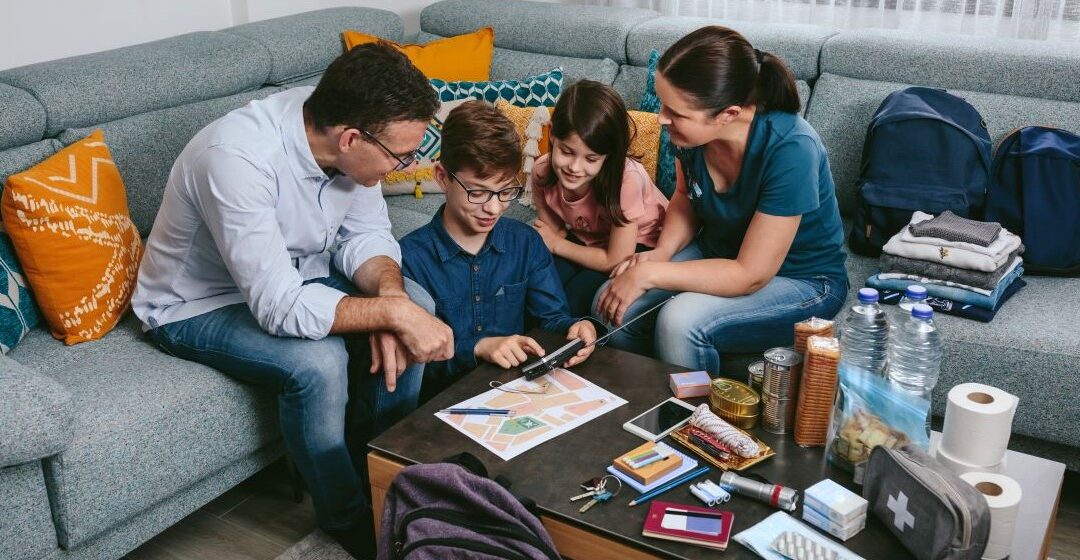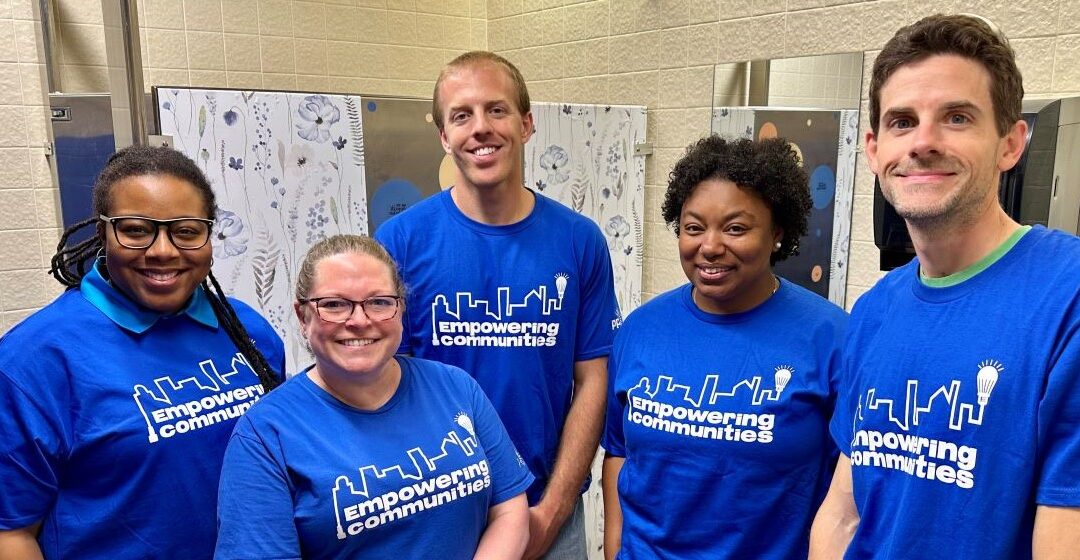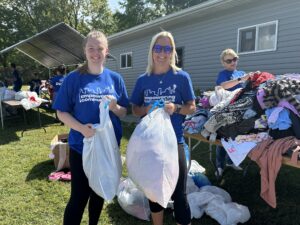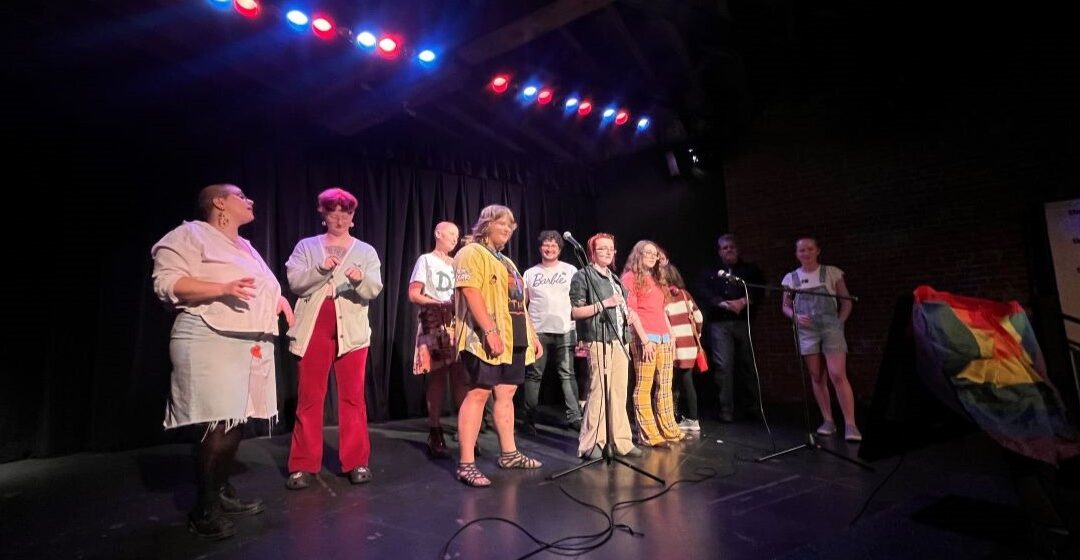
Nov 5, 2024 | Safety and Security
This Fall, persistent dry conditions and minimal rainfall have led to drought conditions throughout much of our 29-county service territory. When there are drought conditions, the risk of brush fires and wildfires increases. As first responders continue to battle a wildfire in Lehigh Township, it is an important reminder that having a plan for any emergency is the first step to ensuring you and your loved ones stay safe.
“The safety of our customers and the communities we serve is always our primary focus,” said Ed Harakel, vice president of Operations. “With dry conditions expected to continue, it’s important to be mindful of the heightened risk for fires and be prepared for any sudden changes.”
What can you do to prepare for wildfires?
- Prepare an emergency kit and be ready to put it in your vehicle.
- Follow wildfire prevention tips found at ready.gov/wildfires.
- Create an evacuation plan and make sure to practice that plan so that you can leave quickly if needed.
- Maintain your lawn and remove combustible debris from around your home.
- Download important mobile apps – FEMA and the National Weather Service – to receive timely updates and alerts.
- Sign up for PPL Electric alerts to receive important updates by visiting pplelectric.com/alerts.
What do we do to prepare?
We prepare year-round for emergencies, including wildfires, and are ready to respond at a moment’s notice around the clock to help protect our system and keep our customers safe. We do this by:
- Monitoring weather conditions and working with emergency management officials to guard against wildfire risks across our territory.
- Inspecting lines and other electric infrastructure.
- Making investments throughout the year to strengthen our electric delivery system against severe weather and natural disasters.
- Trimming trees and controlling brush along our right of ways to reduce the possibility of vegetation impacting power lines.
- Using innovation and automated tools to detect trouble and reroute power.
“Our team coordinates closely with local and state emergency management agencies, community liaisons and elected officials through regular communication all year,” said Harakel. “So, when a wildfire does occur, the PPL Electric team is boots on the ground with emergency responders continuously monitoring the situation.”
Should a fire become a larger threat to our system, know that we are prepared to take appropriate actions to lessen damage to the grid and minimize outages. If necessary, we will communicate important information and updates to you via phone, text or email. Now is a great time to sign up and customize your alert settings at pplelectric.com/alerts.

Oct 25, 2024 | Community Involvement
VIDEO: PPL making fitness accessible to all at the Bloomsburg Area YMCA
Through its grants, the PPL Foundation invests in building communities. There are a number of grant cycles year-round that support different initiatives. Every summer, the foundation awards Powering Equity grants to organizations that specifically work to promote greater equity and inclusion in the neighborhoods we serve.
The Bloomsburg Area YMCA is a recent recipient of a Powering Equity grant. It serves Columbia and Montour counties and is dedicated to youth development, healthy living and social responsibility. The YMCA is using the Powering Equity grant to support its growing Adaptive Health and Recreation Program for children with disabilities.
“This adaptive program is meant for kids ages three to 13,” said Collin Benfield, director of programs and membership development at the YMCA. “We try to offer a myriad of different sporting and recreational opportunities for kids that may not otherwise get them in a safe manner and in a manner that helps aid their physical therapy.”
The program kicked off in 2023, and it is currently offering its second cycle of classes. It’s quickly becoming popular in the area, growing from 10 children to 22 in the first year.
“The kids and the families love it,” said Wayne Stump, chief executive officer at the YMCA. “It’s evidenced by just how quickly this program has grown.”
There are two sessions during the year during the spring and fall. The current fall session is held on Wednesday nights, which is becoming the highlight of these kids’ weeks.
“Their feedback is that they want it more often – every day, if they could,” Benfield said. “It feels amazing knowing that we’re providing wellness for all…regardless of ability or disability.”
As the program expands and the numbers grow, the need for funding becomes more important.
“We wouldn’t be able to do it without the funding that we do get. We’re really appreciative of the PPL Foundation and others,” Stump said. “With the amount of costs that families have, this might be a burden if they had to pay for it.”
The YMCA says it looks forward to accepting more kids into the program and continuing to provide accessibility to all.
“To me and the rest of the grants committee, when programs benefit a wide range of diverse groups, that really makes them special,” said Jonah Howe, PPL Electric Utilities’ regional affairs director in the area. “We’re proud to support the Adaptive Health Program at the Bloomsburg YMCA.”

Oct 1, 2024 | Community Involvement
We value more than delivering safe and reliable power to our 1.5 million customers. For over 100 years, we’ve served communities throughout central and eastern Pennsylvania, not just because it’s our job, but because this is our home. It’s where our children go to school. We’re all neighbors.
That’s why we’re proud to support our communities in a number of ways, including volunteerism. Over 460 PPL employees recently took part in the United Way’s annual Day of Caring. Our employees painted, planted, packed, shopped and beautified 20 different organizations across our service area.
It takes a lot of coordination to make this come together. A team captain from PPL was assigned to each of the 20 organizations. The captains worked with the organizations to address their biggest needs and figure out how to provide the most assistance possible with our groups. From there, captains worked with their fellow volunteers to organize supplies and execute safety protocols.
This event is always our favorite. More PPL employees join in to make a positive impact in their communities every year. In fact, our participation has more than doubled over the last two years. In addition to the United Way’s Day of Caring, we follow up our efforts with a Family Day of Caring. This allows for our employees to share in this great work with their loved ones.
We look forward to keeping this momentum going, and we can’t wait to go even bigger in 2025.

In the meantime, we’re excited to continue this commitment to our neighborhoods. We take part in countless volunteer events year-round. In 2023, our employees volunteered over 15,000 hours. That equals more than one full day of volunteering each year for each of our 1,700 employees.
Giving back isn’t something we do because it looks good on paper, it is in the fabric of who we are.

Aug 20, 2024 | Community Involvement
Being part of the communities we serve goes well beyond delivering safe, reliable electricity. Through PPL Foundation’s Empowering Communities grants, we support local programs focused on environmental stewardship and education, economic development and/or workforce development.
Lehigh Carbon Community College in Schnecksville is a recent recipient of an Empowering Communities grant. The college used this funding to both buy new heating, ventilation and air conditioning (HVAC) equipment and update older equipment for its students to use in the classroom.
“We teach the students the basics for refrigeration and air conditioning, and we push a lot of hands-on learning,” said Tim Brady, associate professor of the HVAC program at LCCC. “So, we need to maintain equipment that keeps up with the changes and certifications in the industry.”
The new equipment, which includes a refrigeration training unit and hydrocarbon and carbon dioxide manifolds, was introduced and used for the first time this year during LCCC’s summer session. Roughly 50 more students will benefit from these new tools during the fall semester.
“When we initially purchased the equipment in October of 2023, it felt like Christmas came early,” Brady said. “So many aspects of our daily lives depend on these skilled workers.”
From office buildings to hospitals to the air conditioners in our homes, HVAC’s impacts can be found everywhere. Furthermore, the college says that there’s a demand for trade workers nationwide. That need is proven by an increase in professional demand for LCCC’s students.
“I used to get one call at the end of a semester from employers,” Brady said. “Now, I get two or three calls per semester. They used to tell me they were looking for a student, and now they’re asking me how many I can send them.”
Through this Empowering Communities grant, students are learning how to work with equipment they’ll run into while out in the workforce. By the time they leave the program, the students earn 14 different certifications, including certificates for newer and more environmentally friendly refrigerants that are becoming standard in the industry. This learning isn’t just important for the students’ professional development, but LCCC students can use their expertise to make a positive impact in communities throughout central and eastern Pennsylvania.
“Our HVAC students could be working in the hospital that your parents are staying in,” said Dr. Andrea Grannum-Mosley, dean of the School of Workforce at LCCC. “We’re happy that PPL was able to support this. PPL is helping Lehigh Carbon Community College help everyone, and it really warms our heart.”

Jul 31, 2024 | Community Involvement, Diversity/Equity/Inclusion
Delivering safe, reliable electricity is just one of the ways we take part in the communities we serve. Through the PPL Foundation’s Powering Equity grants, we support nonprofit organizations advancing diversity, equity and inclusion, and protecting underrepresented residents.
The Cooperage Project in Honesdale recently received a Powering Equity grant from the PPL Foundation. The Cooperage Project is a not-for-profit that serves its surrounding community through youth, food, and arts and culture programming. The organization is using this funding to support its LGBTQ+ programming offered throughout the month of June and into the fall. The Cooperage Project began hosting Pride events in 2022.
“In Wayne County, there weren’t any visible Pride community events at the time,” said Arrah Fisher, executive director of The Cooperage Project. “The first event we hosted was a smashing success, so when PPL announced its new Powering Equity grant category in 2023, we thought it would be great to apply to fund some of this Pride-related programming.”
Funding from the round of 2024 grants will go toward three different Pride events hosted throughout the month of June, and it will also be used to build off a Cooperage Project event that was funded by 2023’s round of Powering Equity grants, called Community Conversations beyond the LGTBQ+ Culture War.
“We had a panel discussion with community members from several different backgrounds – a school counselor and a local reverend to name a couple,” Fisher said. “We had over 150 people show up to be a part of this conversation and listen. It was incredible.”
Fisher says the hope is not only to educate the broader community, but to provide a safe space.
“When we held our last Pride karaoke event, we had over 100 people show up, and nearly half of them were teenagers,” Fisher said. “They feel safe, affirmed and supported at The Cooperage Project. For us, we like to know that what we’re doing is mattering.”
Fisher also says having an initiative like Powering Equity grants is important to building a deeper sense of understanding.
“As an organization, we don’t see as many opportunities for funding equity-based programming,” she said. “The PPL Foundation supports us in a lot of different ways, and it has made a tremendous impact on our programs and on the people in our community.”






